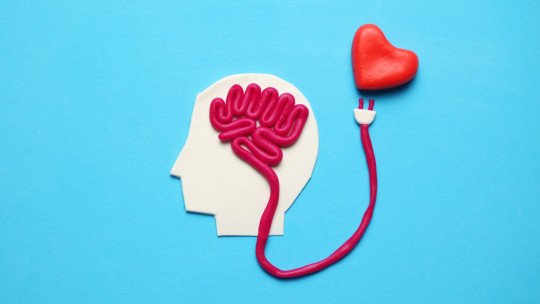Why is it important to develop emotional responsibility within a relationship? What problems can the lack of this responsibility bring? Find out how to develop it.

What we feel about other people does not mean it is reality. In this premise is what emotional responsibility is based. That is, we are not responsible for what other people feel or for what we feel about others. Therefore, faced with this reality, it is important to distance ourselves from what we feel. But why is emotional responsibility important?
What is emotional responsibility?
When we refer to be emotionally responsibleThat is, we point out emotional responsibility, it involves changing our beliefs around emotions. This is because, in many cases, when we feel a specific emotion we usually relate it to reality or a fact. On the contrary, we cannot blame external factors or, more specifically, a specific person for how we feel at a specific moment.
In fact, this action is called emotional projection and involves trying to rationalize our emotions. That is, instead of trying to take responsibility for how we feel at a specific moment, we try to transfer this task to others. When We are not responsible for our emotions, This can end up causing real harm to ourselves and others, resulting in negative effects both on a relationship and on our mental health.
The importance of emotional responsibility in the couple
The emotional responsibility It is crucial for a healthy relationship. Therefore, the best way to cultivate a healthy bond within a couple is precisely by taking emotional responsibility into account. A couple who is emotionally irresponsible can end up with behaviors that damage not only the relationship itself but the mental health of both parties. For example, emotional dependence or excess control can be closely linked to emotional irresponsibility.
What does it mean to have emotional responsibility?
When faced with emotions, especially when we perceive them to be very strong, it is completely normal to try to rationalize them or believe that we cannot control them. When we hold others responsible for how we feel, we are actually trying to get rid of this discomfort as quickly as possible. If you identify with this attitude, we recommend that you keep the following in mind:
- Speak things from your perspective: Instead of talking about an emotion or feeling in an ‘objective’ way, try talking about it from your perspective. This It means not blaming others for how you feel., but rather make a description of how certain situations make you feel. For example, instead of saying “You leave me alone when you’re late“You can say it by explaining how you feel”“I feel sad when you are late.”.
- Indicate your needs: No one knows how to read minds, so instead of believing that others should know how we feel or what bothers us, try to point out what is making you feel bad when it happens. In fact, express these emotions It will help you understand that in many cases, the other person is not aware that they are harming you.
- Focus on your own actions: Instead of only seeing the flaws or mistakes of others, try to also analyze what your behavior is. There may be many occasions in which we are the ones who can make mistakes and give rise to a misunderstanding or a situation that can harm us.

- Face your own thoughts: Our internal dialogue can play tricks on us. In fact, this dialogue can end up causing us to misinterpret a specific situation or think about details that perhaps we should not give so much importance to. Given this negative tendency that we all have, it is important try to reason with these thoughts and dialogue with them.
- Take our share of responsibility: If you feel that with your words or actions you have hurt someone, it is It is important that you assume your part of responsibility. In these situations, it is important that you take into account the other person’s emotions and perspective.
- Ask for help if you need it: If you think you are trending toward a negative emotional cycle, remember that you don’t have to go through this alone. In many cases, a professional psychologist can help you identify those moments in which you may be defensive or afraid.When you are not being emotionally responsible.
Given all this advice, it is crucial that you keep the following idea: you are not responsible for the feelings or actions of others, you can only control your attitude towards what you feel. Therefore, in many cases we should remember that other people’s feelings are not always your responsibility, in the same way that others are not responsible for how you feel.








